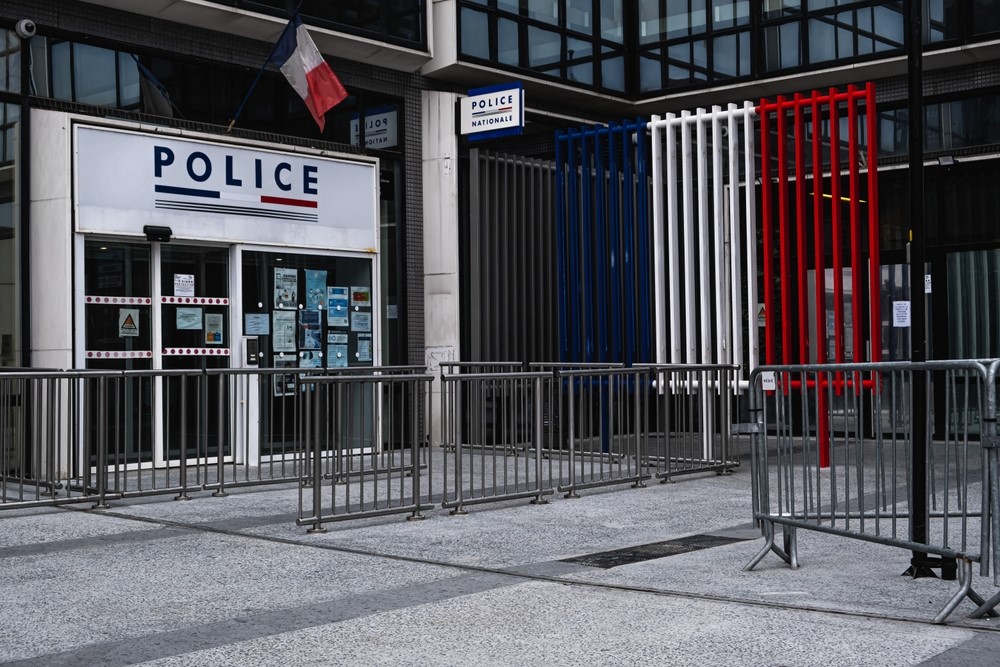Police crackdowns on low-level drug offences in England are often taking place for symbolic purposes, can exacerbate violence, and may increase health risks for people who use drugs, a recent report warns.
In May 2017, the International Journal of Research and Policy published a report entitled Symbolic policing: situating targeted police operations/‘crackdowns’ on street-level drug markets. The report outlined the findings of quantitative and qualitative research into illicit drug markets in Southend-On-Sea, Plymouth, and Torbay (Devon). The authors’ research included the examination of arrest records and seizure data, as well as interviews and ethnographic observation.
People identified as "problem drug users", primarily of heroin or crack cocaine, were interviewed so that researchers could acquire "first-hand insight into the nature of the local problem drug market". The researchers also interviewed people whose work often focused on drug use – including youth workers, police officers, treatment providers, and police intelligence providers.
What is Symbolic Policing?
The report’s authors assert that local drug policing in England often manifests as “specific, high-profile, crackdown operations which themselves are mostly a generic, periodic response to particular criminality”. These occasional and prominent operations, the authors claim, are examples of “symbolic policing”: law enforcement activity that intends to convince the public that crimes are being solved or prevented, rather than activity that actually solves or prevents crimes.
For example, public discourse from officers working on Operation Tibia – a counter-narcotic operation that took place in Bristol in 2015 – suggested that the activity was intended at “assuaging the public’s fear of crime and perceived failings of enforcement”, the report claims, alongside reducing drug-related crime. This may be indicative of one benefit of symbolic policing; it may improve individuals’ sense of security – even if security has not actually been improved.
Regardless of this perceived positive outcome, crackdowns that result from symbolic drug policing can be “unhelpfully insensitive to local conditions”, the report states, and – in some instances – increase certain types of crime, and worsen public health.
While this study looks solely at England, symbolic drug policing is undoubtedly a recurring theme in many jurisdictions around the world.
Issues with the purpose of Symbolic Policing
By its nature, symbolic drug policing targets people who are visibly involved, or perceived to be involved, with the illegal drug trade. This, the report asserts, leads to “[police] propensity to scoop up low-hanging fruit … namely low-level, visible street dealers”.
Indeed, in the three locations that the research was focused in, interviewees described police counter-narcotic crackdowns as targeting people who used or sold drugs in public – “visible local users, runners and user-dealers”. Essentially, rather than attempting to infiltrate the higher echelons of large-scale commercial trafficking groups, symbolic drug policing is more likely to target already-marginalised people, some of whom suffer from problematic drug use.
“I got arrested … I said to them … ‘you’ve caught all these people, but the people who were supplying me and the people who were supplying all these other people … and don’t you want to go after those?’” lamented an interviewee in Plymouth who uses heroin, “And they [the police] would quite openly say ‘trying to do that takes too many resources and we don’t have a good enough success rate of prosecutions’”.
“These [undercover] coppers they used to go up to people [selling] the Big Issue because they’re desperate, they’re trying to get money to get their fix,” another Plymouth-based interviewee said, referring to the magazine that is often sold by homeless people, “they [the police] say ‘I’ll buy you bag if you go and get me one’ and that’s how they trick them”.
In Southend-On-Sea and Plymouth, such clandestine operations have led to regular mass arrests of people who sell or use drugs publicly in so-called “sting operations”, the report describes.
Such targeting of low-level offenders helps police achieve their symbolic goals; removing people who use or sell drugs from public spaces, reinforcing notions of what is and what is not acceptable in the local community, and instilling a stronger sense of security.
Unintended consequences of Symbolic Policing
Cracking down on low-level “user-dealers” can encourage large-scale commercial dealers to enter the market to fill the void. The latter are more likely to use violence to further their business, the report describes, thereby creating a worse situation for residents and police.
Additionally, some people who use drugs, or small-scale drug suppliers who fear their business being disrupted, may “switch to alternative forms of criminality” to financially sustain themselves. This consequence has been acknowledged by police interviewees in the study, the report notes. For example, in Torbay, the police force “have to judge whether [they] want acquisitive crime to go up” when undertaking certain types of drug policing.
Additionally, and worryingly, police crackdowns on low-level drug offences are linked to increased rates of HIV and Hepatitis B, as well as “feelings of anxiety and ‘paranoia’ following undercover crackdown operations”. The fear of criminalisation can lead to people who inject drugs doing so in riskier environment, and induce fear of seeking treatment or harm reduction services – such as sterile needles.
Based on this research, symbolic drug policing may be increasing violence in the drug trade, encouraging people who use or sell drugs to undertake acquisitive crime, and driving the spread of infectious diseases.
—
Despite the significant harms associated with high-profile police crackdowns on relatively low-level drug offenders, such symbolic policing continues to be prevalent in England. In Plymouth and Southend-on-Sea, the report describes, police defend such methods on the grounds that they “have tangible value in disrupting the overall functioning of a criminal organisation’s supply chain”. However, there is little evidence to support such a correlation, the report’s authors warn, aside from a temporary “initial deterrence effect”.
Drug-related deaths have reached a record high in England, suggesting that the current policing approach is doing little to reduce the harms of illegal substances. Instead, the report recommends, more benefit may be found in policing the violence associated with the drug trade.
The full report is available for download here: Symbolic policing: situating targeted police operations/‘crackdowns’ on street-level drug markets


